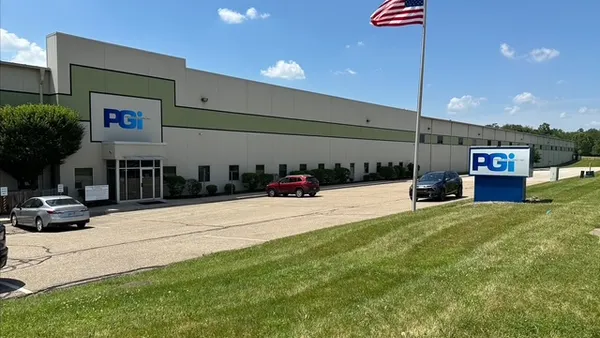Dive Brief:
- John Deere predicts it will spend $40 million on expedited freight to ensure no disruption in supply of components manufactured in China related to COVID-19, said CFO Ryan Campbell on the company's Friday earnings call.
- Apart from the global shakeup of COVID-19, an illness in the coronavirus family, John Deere executives said the U.S. agricultural economy shows signs of stabilization in light of the U.S.-Mexico-Canada agreement passage and the phase one trade deal with China. Still, Deere does not expect farmers to rush out and buy enough new equipment to bring significant order growth in 2020.
- "Continued positive sentiment will be dependent, in part, upon a pickup in U.S. exports of agricultural goods to China," said Campbell.
Dive Insight:
John Deere has been in cost-cutting mode for several quarters as the U.S.-China trade war dampened sentiment among farmers and stifled investment.
The OEM laid off 220 workers at manufacturing plants in Iowa and Illinois last year, citing adverse market conditions, and brought inventory to record lows. The company reported the lowest combine and tractor inventory to sales ratio in five years in the fourth quarter of its fiscal year 2019, reflecting Deere's efforts to save $150 million per year including the layoffs.
"The actions we took in 2019 resulted in desirable field inventory to sales ratios that are significantly below the rest of the industry. And we'll continue to manage new equipment inventory tightly throughout the year," said Brent Norwood, manager of investor communications. Campbell added that inventory will likely come down again in 2020.
Executives struck a cautiously optimistic note on the Friday call, because inventory management has put the company in a good position to handle a business environment in flux. Executives said material and freight costs should still be favorable year-over-year, even with the $40 million in additional freight expense due to COVID-19.
Deere's level of optimism about future sales is a decent barometer for the global trade environment, because the purchase of costly new machinery for farms is essentially an investment in future success. The USDA predicts net farm income will be up 3.3% year-over-year in 2020 and the majority of farmers are planning to spend less on equipment in 2020 than they did in 2019, according to a survey by the American Farm Bureau, reported by Bloomberg.














